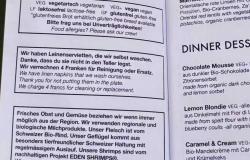At these two sites, the Atomic Energy Organization of Iran supervises uranium enrichment activities to a purity rate of 60%. Reached for the first time in April 2021, it is considered close to the 90% necessary for possible military applications. For more than twenty years, Iran – which denies it – has been suspected of wanting to achieve mastery of atomic weapons. The Islamic Republic has already amassed enough enriched fuel to be able to produce virtually two or three nuclear bombs. However, according to the action plan (JCPOA) concluded with the world’s major nuclear powers in 2015, Iran can normally only enrich its uranium to a maximum rate of 3.67%.
Iran boosts enrichment capacity following IAEA reprimand
Third call to order
Last week, the IAEA Board of Governors passed a resolution reprimanding Iran for its chronic lack of cooperation in recent years. This is the third call to order addressed to Iran in two years, requiring it to respect its obligations in terms of inspections on undeclared sites where traces of anthropogenic uranium had been discovered.
By twenty votes out of 35 (Russia and China having voted against), the governing body of the nuclear watchdog had stressed that Tehran must “urgently, fully and unambiguously cooperate with the Agency”, according to the text of the resolution introduced by France, Germany and the United Kingdom. In particular by reinstalling surveillance cameras on certain sites.
A “very hard blow”
Since the last reprimand to Tehran in November 2022, the list of problems facing the agency in Iran has grown. Last week’s resolution calls on Iranian authorities to resolve several of them. The IAEA demands, among other things, that Iran reverses its decision to withdraw the designation of several experienced inspectors it had mandated, which is essential to allow the agency to effectively carry out its verification activities in Iran.
Europeans want to extend sanctions on Iranian ballistic missiles
IAEA Director Rafael Mariano Grossi met with officials in Iran last month in hopes of breaking an impasse over the uranium particle investigation and the presence of inspectors, but also to extend IAEA surveillance to parts of Iran’s atomic program. Last September, Iran refused several atomic enrichment specialists from the inspection team, which the head of the IAEA had described as a “measure.”disproportionate and unprecedented” as well as “very hard blow” undermined the agency’s ability to do its job properly.






